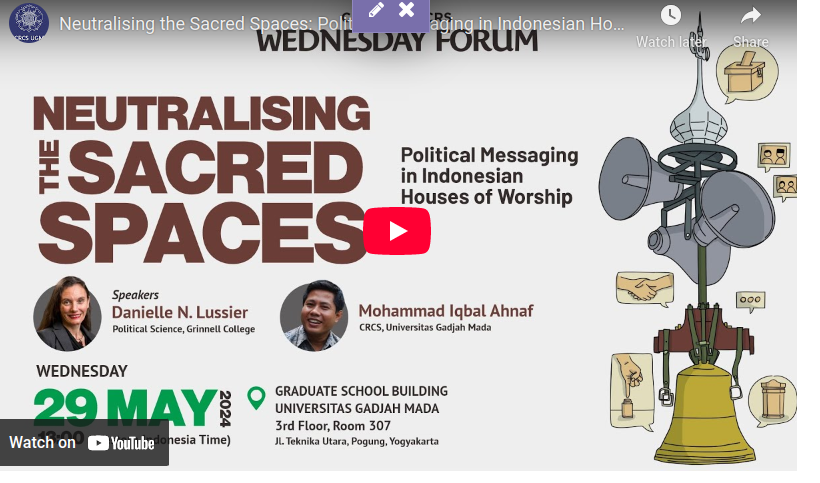
The politicisation of houses of worship has become a major issue in recent elections in Indonesia. A key concern is the fear that sacred spaces will become a polarising platform for electoral mobilisation. However, the impact of political messaging from religious leaders is not always straightforward, including those delivered in houses of worship. This presentation will examine frequent claims that religion serves as a motivator of political behaviour in Muslim-majority contexts. Through an examination of 71 sermons that took place in mosques and churches in Yogyakarta prior to elections in 2017 and 2019, we analysed the frequency, style, tone, and consistency of political content, which are key in their potential as a mobilizing force for political action.
Danielle N. Lussier is an associate professor of political science in Grinnel College. Her research focuses on democratization, political participation, and religion and politics, with geographic expertise on post-communist Eurasia and Indonesia. Based on extensive fieldwork in Yogyakarta, Indonesia and an original survey in the region, Lussier is developing a book manuscript on the role of houses of worship in the political lives of Muslims and Christians in Indonesia.
Mohammad Iqbal Ahnaf is a faculty member at the Center for Religious and Cross-cultural Studies (CRCS), the Graduate School, Universitas Gadjah Mada. He obtained his PhD from Victoria University of Wellington, New Zealand, in 2011 with a dissertation titled “From Revolution to Refolution: A Study of Hizb al-Tahrir, Its Changes and Trajectories in the Democratic Context of Indonesia (2000-2009)”.
